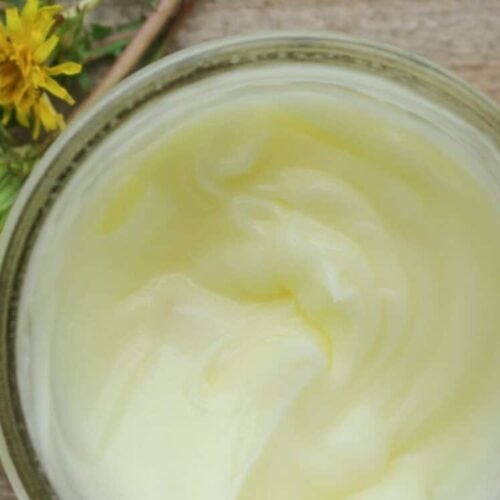There are over 85,000 chemicals in use in our soaps, shampoos, deodorants, lotions, make-up and home cleaning products. Guess how many have been tested for safety?
Almost none.
Chemicals Get No Safety Testing
Up until 2016, the U.S. Environmental Protection Agency has mandated safety testing for only a tiny percentage of the industrial chemicals in use today. Because of this, under-researched, hazardous chemicals have become so ubiquitous that scientists now talk about babies being born pre-polluted, sometimes with hundreds of synthetic chemicals showing up in their blood at birth.
The increase of harmful chemicals—like the bisphenol A (BPA) in can linings, cash register receipts and hard plastics; the phthalates in soft plastics; the flame retardants in couches; the stain-resistant coatings on fabrics, and the nonylphenols in detergents, shampoos and paints—have caused experts to call for changes to our laws to require better testing and set much stricter standards on what chemicals are allowed in the products we use every day.
But until we have adequate scientific evaluation of these chemicals, the only way to be sure your personal care and house cleaning products are safe is to either check them against the Environmental Working Group’s Skin Deep database, or to make your own from food-based, natural ingredients.
Fortunately, there is a brand new book out that can make that easy and fun.
DIY Products are Safe and Perfect for YOU

You can easily get the toxins out of your skin care products and cleaners with the simple, fun recipes in The Big Book of Homemade Products for Your Skin, Health and Home.
In this incredible updated resource, author Jan Berry teaches you the basics of making your own skin care and hair care products, health remedies and household cleaners—and then how to customize them into truly unique and personalized items!
You’ll learn how to make:
- Honey, Rose & Oat Face Cleanser
- Cool Mint Body Wash
- Basic Calendula Lotion
- Floral Salt Foot Scrub Bars
- Basil & Lime Lip Balm
- Lavender Oatmeal Soap
- Violet Flower Sore Throat Syrup
- Thyme Counter Cleaner
- Lavender Laundry Detergent
- And dozens more!
All of the projects are easy to make and use commonly found herbs, flowers, oils and other natural ingredients. You won’t need any fancy equipment or previous experience. If you don’t have a certain ingredient on hand, Jan provides tips on how to substitute and what works best.
With this book, you can use local, natural ingredients to make something beautiful, effective and good for you and your family.
Here is one of my favorite recipes from the book…
Dandelion Magnesium Cream
Magnesium is an essential mineral that most people do not get enough of from their daily diet. Magnesium deficiency can lead to headaches, muscle cramps, insomnia and a variety of other ailments.
Besides eating spinach and taking Epsom salt baths and magnesium supplements, another way to get more of this vital mineral is by rubbing magnesium oil into your skin.
Because straight magnesium oil can make skin dry and itchy for some people, it’s best to buffer it in a lotion or cream, especially one containing soothing aloe.
Dandelions were added to this recipe because the anti-inflammatory properties of the flowers make this cream particularly helpful for muscle cramps and other aches and pains.
More Dandelion Recipes
If you want to get the toxins out of your body care and cleaning products, and save a lot of money in the process, definitely check out The Big Book of Homemade Products for Your Skin, Health and Home. This is one of the best books I’ve seen on the subject!

Dandelion Magnesium Cream
Ingredients
- 2 Tbsp. dandelion-infused oil, (30 ml) (see page 17 of the book for how to infuse oil)
- 3 tsp. emulsifying NF wax, (6 g)
- 2 Tbsp. magnesium oil, (30 ml)
- 2 Tbsp. distilled water, (30 ml)
- 1 Tbsp. 100% aloe vera gel , (15 ml)
- 2 or 3 drops lavender essential oil, (OPTIONAL)
- natural preservative, (OPTIONAL)
Instructions
- Add the dandelion-infused oil and emulsifying wax to a heatproof jar or upcycled tin can.
- In spite of its name, magnesium oil is actually water based, so measure it out with the water and aloe and place in a half-pint (250-ml) canning jar.
- Place both containers into a saucepan containing 1 to 2 inches (2.5 to 5 cm) of water, then set the pan over a medium-low burner. Keep both containers in the pan for around 10 minutes. This gives time for the wax to fully melt and the water, aloe and magnesium oil combination to reach a nearly matching temperature of around 150°F (66°C). Remove from heat.
- Carefully pour the hot contents of the two containers into a heatproof mixing bowl or measuring pitcher. As they’re poured together, the separate mixtures will begin to emulsify upon contact and turn a milky white color.
- Using a fork or small whisk, stir the lotion briskly for 30 seconds, then set it aside to cool down for around 5 minutes. To speed up the cooling process, place your mixing container down into a bowl partially filled with ice cubes and water. Stir occasionally, for around 30 seconds at a time, as the lotion cools and thickens. Stir in the lavender essential oil, if using.
- If you’re adding a natural preservative, check the temperature and see if it’s the proper time to do so. Recommended temperature will vary according to type, but preservatives are usually added when the lotion is cooling.
- Pour or spoon the lotion into a bottle or jar. The lotion will continue to thicken as it sets up. Keep tops and lids off until it’s completely cool, to prevent condensation from building up on the lid.
- If you didn’t add a preservative, store your cream in the refrigerator and use within 2 weeks. Apply to legs, feet and back at night, or as needed when leg cramps strike.
Notes
Recommended for This Recipe
Excerpted from The Big Book of Homemade Products for Your Skin, Health and Home by Jan Berry. Copyright © 2020 Jan Berry. Reprinted with permission from Page Street Publishing Co. All rights reserved.












